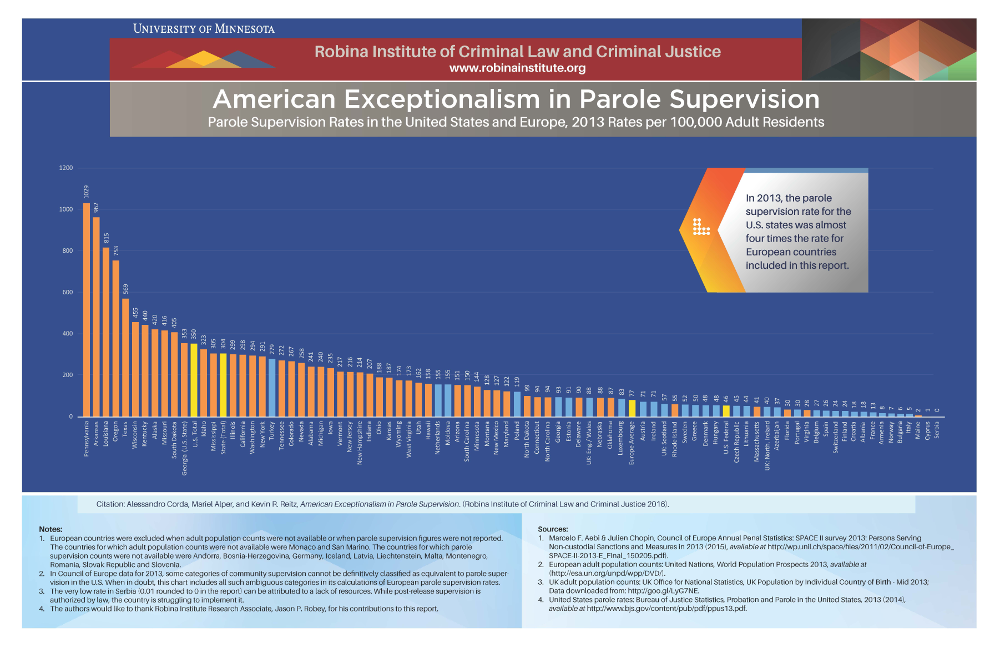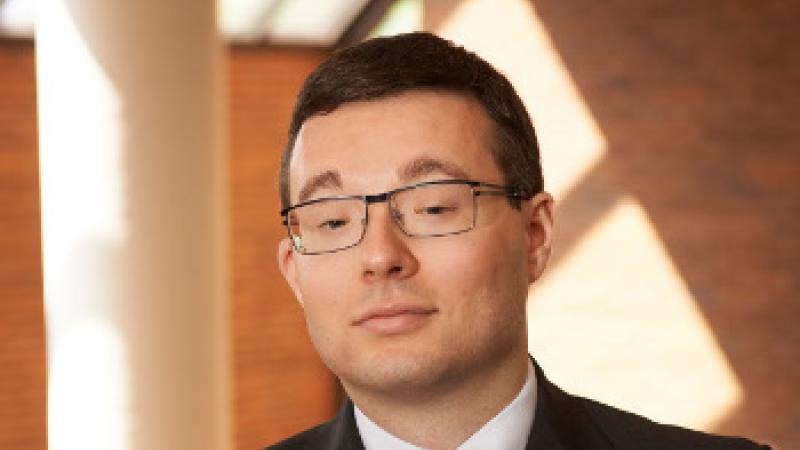In May of 2016, the Robina Institute of Criminal Law and Criminal Justice published new research on American Exceptionalism in Parole Supervision, by Alessandro Corda, Mariel Alper and Kevin R. Reitz. This is the second in a series of Data Briefs that compare community supervision rates in the United States and Europe.
This Data Brief shows that, compared with Europe, America is “exceptional” for its high rates of parole supervision—just as with probation rates. The average parole supervision rate for all fifty U.S. states is almost four times the average rate of all the thirty-three reporting European jurisdictions included in the most complete recent data of the Council of Europe. Several U.S. States with the highest rates of parole supervision (in particular, Pennsylvania, Arkansas, and Louisiana) have rates that are ten to thirteen times the average European rate. And the comparison would be even starker if it was not for some countries that traditionally represent outliers in the European context. Most notably, 46 percent of the European parole population was reported by Turkey. Removing Turkey from the European numbers would make the average European parole rate change from 77 to 48 per 100,000 of the general population vis-à-vis a U.S. state average of 304. Excluding Turkey, the U.S. parole supervision rate at the state level is more than six times the average European rate.

At year-end 2013, 853,200 offenders were on parole in the U.S. at the federal and state level while, in all reporting European countries, only 314,228 people were on parole. This figure becomes more notable if we consider that the U.S. adult population was approximately 248 million while the total adult population of reporting Council of Europe member states was 406 million.
Despite the misleading claim that parole has been “abolished” in the U.S. since the mid-1970s, this trend has affected only parole boards’ discretion about when to release. Post-release supervision in America is alive and well even though discretionary prison release has become less frequent, release usually occurs after a greater proportion of the prison sentence has been served, and supervision is revoked more often following release.
The U.S. prison boom has assured significant numbers of parolees within American criminal justice systems. Local factors have also contributed to the increased numbers under parole supervision. As incarceration rates grew, a renewed emphasis on parole release (especially of low risk offenders) and a tightening of parole revocation policies have been used in some states to address prison crowding. In states like Texas, for example, the parole release rate has significantly grown in recent years. This change in policy also allows the state to require a period of supervision after release, rather than “maxing out” prisoners who then return to the community unsupervised.
American parole, unlike its European counterparts, seems to be dominated and shaped by risk aversion. In the Old Continent, discourse on conditional release revolves around human dignity and procedural justice rather than public safety. In the U.S., parole boards are usually staffed with political appointees whose release decisions are risk-averse and affected by the political climate. In much of Europe, parole decisions are made by special sentence implementation courts that are part of an independent judicial branch of government. They exercise their function insulated from political pressure—a circumstance American parole boards can scarcely dream of. Finally, unlike Europe, once an American inmate is released into the community, burdensome conditions are frequently imposed, representing significant hurdles to his/her reintegration into society.

